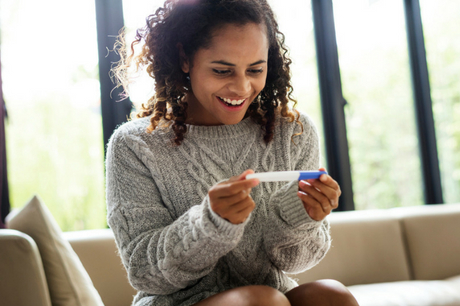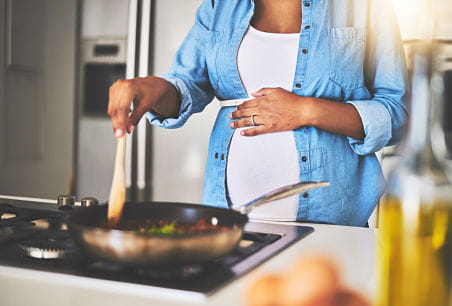How long does it take to get pregnant?
It could take up to a year – or longer – to conceive
Newlyweds looking forward to starting their family certainly know where babies come from…but what they may be wondering is how long it could take to make a baby.
“Some couples conceive on their first try while others may take a little longer,” says Jennifer Gell, MD, a reproductive endocrinologist at Geisinger. “How long it takes you to get pregnant is dependent on a few factors.”
For couples trying to get pregnant, the chances that a woman will conceive are 15 to 20 percent in any particular month. That means there’s a chance you can get pregnant the first month of trying, but it could take anywhere from six months to a year or longer to conceive.
“For women under the age of 35, consider talking to your doctor if you’ve been unsuccessfully trying to get pregnant for 12 months. If you’re older than 35 and haven’t been able to get pregnant after 6 months of trying, it’s time to talk to your doctor,” says Dr. Gell.
If you’ve only been trying to get pregnant for a few months or are just about to start trying, don’t jump the “infertility” gun. Here are some things you can do to help things along while also prepping your body to carry a pregnancy.
If you smoke, it’s time to quit
“Smoking has been linked with an increased risk of miscarriage and ectopic pregnancies,” explains Dr. Gell. It’s not just the mom-to-be who needs to quit either. “You don’t want to be exposed to secondhand smoke from your partner. Plus smoking also lowers a man’s sperm quality and function.”
Take a daily multivitamin or prenatal vitamin
The next thing Dr. Gell suggests is to start (or continue) taking a daily multivitamin or a prenatal vitamin that contains folic acid.
“In the earliest weeks of pregnancy, perhaps before you even know you’re pregnant, the baby’s neural tubes develop – these are the earliest versions of the brain and spinal column,” explains Dr. Gell. “Taking a supplement with folic acid is a key component of reducing the risk of birth defects.”
Talk to your doctor about your weight
Being significantly under or overweight can have an impact on your fertility.
“Women who are underweight, or with a body mass index (BMI) lower than 19 may have difficulty conceiving if they do not have regular menstrual cycles,” says Dr. Gell, noting that a normal BMI range for women is 19 to 24. “We suggest that women with a low BMI and absent menstrual cycles consider an evaluation with a fertility specialist.”
On the other hand, being overweight could mean you have insulin resistance – having too much insulin in your body can disrupt menstruation. Losing five to 10 percent of your bodyweight can be enough to spur ovulation and menstruation.
Cut back on your alcohol intake
“There’s no solid evidence that moderate alcohol intake will have an effect on your fertility, but you may want to err on the side of caution and stop drinking alcohol when you start trying to conceive,” says Dr. Gell. “Early in pregnancy, the baby’s crucial organs develop, typically before eight weeks of pregnancy, when a woman may not know she’s pregnant yet.”
Although having a glass or two of wine before you know you’re pregnant is usually fine, there’s technically no safe amount of alcohol during pregnancy. And excessive alcohol consumption during pregnancy can lead to fetal alcohol syndrome, which is a constellation of physical and mental defects.
Next steps:
Find a women’s health specialist
Learn about prenatal and postnatal care



